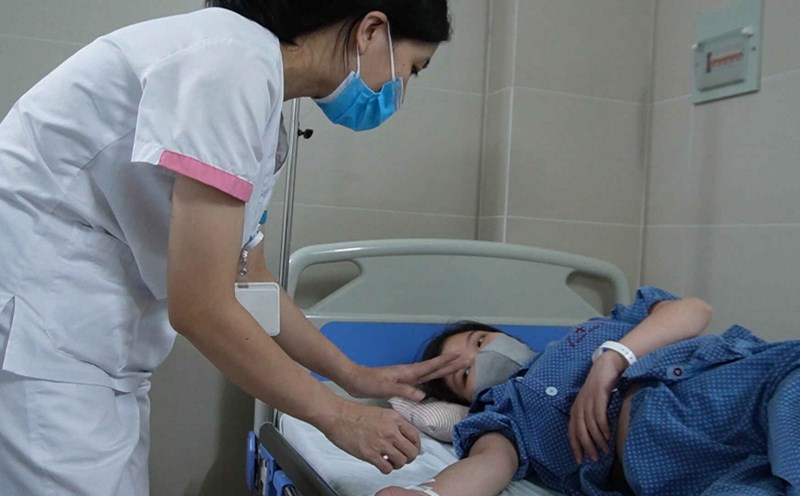According to the World Health Organization (WHO), the influenza virus tonzes longer in cold environments, increasing the spread rate many times. In Vietnam, the Ministry of Health recorded a rapid increase in the rate of children hospitalized for influenza in September-October 2025 in large cities such as Hanoi, Ho Chi Minh City, Da Nang - where population density is high and the weather suddenly turns cold.
Currently, many influenza variants (A/H1N1, A/H3N2, influenza B) are circulating at the same time, making the epidemiological situation complicated and increasing the risk of outbreaks in winter.
Winter is an ideal condition for the flu virus to develop and spread. In cold and dry weather, the lipid layer surrounding the influenza virus becomes more stable, helping the virus survive longer in the air and on contact surfaces.
The trend of living in a closed space with little ventilation makes the virus easily transmitted from person to person through drops of water when talking, coughing or sneezing.
In addition, the immune system is often weakened in the cold season due to little sunlight (affecting vitamin D synthesis), changes in lifestyle and nutrition, poor sleep, and dry nasal-gall gland. These factors make the body more susceptible to flu and respiratory diseases than other seasons.
seasonal flu causes mostly mild symptoms but can progress severely in the elderly, pregnant women, young children and people with chronic diseases (cardiovascular disease, diabetes, lung disease...).
Dr. Nguyen Nguyen Huyen - Director of the Center for Disease Prevention and Control, Central Hospital for Tropical Diseases - emphasized: Currently, the changing seasons and fluctuating temperatures are favorable conditions for the influenza virus to spread strongly in the community. Annual flu vaccination is a simple but extremely effective measure to help protect health, reduce the risk of disease and avoid dangerous complications, especially in young children, the elderly, pregnant women and people with underlying diseases. People should proactively vaccinate themselves and their children against influenza, especially during the period of increasing epidemics.
The vaccine works by stimulating the body to create antibodies against virus strains expected to circulate in the next season. When the body is exposed to a real virus, the "trained" immune system will react quickly, helping to prevent infection or reduce the severity and risk of complications.
In Vietnam, the Ministry of Health recommends that people be vaccinated against influenza every year, preferably 4-6 weeks before the cold season, so that the body can create immunity in time. The effectiveness of the vaccine usually lasts 6-12 months, due to the flu virus changing constantly, so annual vaccination is necessary.











